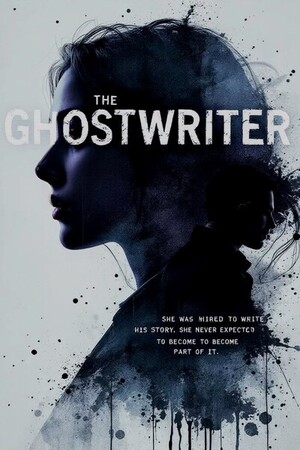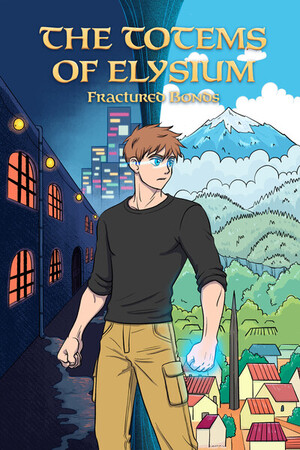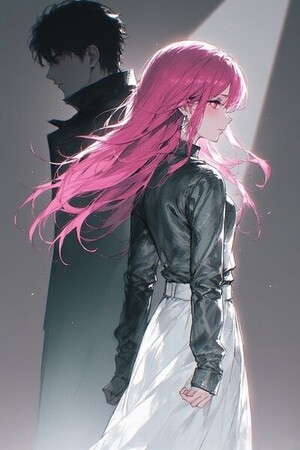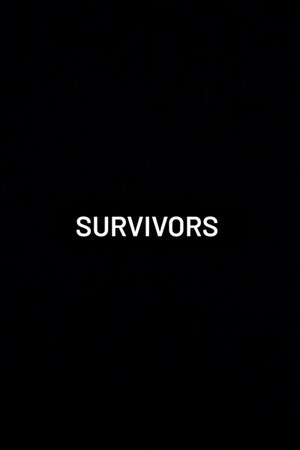Chapter 4:
THE NIGHT SESSION
THE GHOSTWRITER
The rain hadn't stopped since sunset. It came down heavy, sliding along the tall windows of Blackwater Hall and pooling at the edge of the cliffs. Every time the wind hit, the old house groaned like it was tired of holding itself up.
Julian had said, "Tonight, I might feel better."
By eleven, I was outside the library, my hand resting on the cold brass handle, pretending not to be nervous. The door was half open. The fire was going low, restless. A single lamp in the corner threw a golden circle across the rug. The air smelled of whiskey, cedar, and rain leaking through a window someone had never quite shut.
Julian sat on the couch, one leg tucked under him, sleeves rolled to his elbows. Barefoot. His hair was damp, like he'd just stepped out of the shower and hadn't decided who to be yet. A record played behind him slow blues, faint crackle.
He didn't look up.
"You're late I was waiting for you"
"Well you didn’t really give me a schedule except for the very vague “Tonight”.
"I guess you’re right" he said, pouring two drinks. The sound of the liquid hitting glass was louder than the rain. He held one out to me.
"You drink?"
"Not usually."
"Good night to start."
I reached for the glass, forcing a smile. When our hands touched, it was brief but enough to jolt something in the air. I looked away too quickly, and as I took the glass, half of it sloshed onto the floor.
Julian laughed not a mocking laugh, but warm, genuine, and endearing one.
"I'm sorry! I'll clean it" I blurted, frozen in embarrassment.
Instead, I took a gulp. The whiskey hit hard, burning all the way down. I wasn't ready. Coughs tore through me, tears welling up.
He kept laughing, watching every clumsy movement. It was the first time I'd seen him laugh; his eyes seemed to light from within.
I couldn't help but laugh too.
"Well, that's an icebreaker," he said, still smiling. "You okay?"
"I'm fine. Just forgot how strong whiskey can be."
I set the glass down.
"So now that I've embarrassed myself, this is the part where you talk."
He looked amused.
"Talk about what?"
"The beginning." He smirked.
"You mean the moment you spilled half your drink, or the part where you almost died drinking the rest?"
"Not this one, the one about you."
He thought for a moment, then nodded.
"All right. Tulsa, Oklahoma. Tiny apartment, paint peeling at the corners. Dad worked nights at a steel plant. Mom played piano in a bar when the owner remembered to pay her. She was the one who taught us to play she said sound travels farther than memory."
He rubbed his thumb against the rim of his glass.
"She died when I was nineteen. Car crash. Dad too. Same day. Levi was sixteen he didn't cry. Just went into our room, grabbed the guitar, and played for eight hours straight. I tried to stop him once he said if he stopped, he'd feel it."
The fire cracked. His face tightened as he spoke, muscles remembering the effort of holding back.
"So music became... what? Therapy?" I asked softly.
"Noise," he said. "Just noise at first. Then it became a job. We called ourselves The Vales. Stupid name really, but it stuck. You've heard of us."
"Everyone has," I admitted. "But I never knew how it started."
He smiled faintly, the kind that looks backward.
"It started in a garage behind our dad's old truck after his death. No insulation, just concrete, spiders, and heat thick enough to chew. Levi said if hell had a rehearsal space, it'd look just like that."
He laughed once again. It was not bitter, just him remembering.
"We didn't have real instruments. Levi played drums on paint buckets, and I strung my guitar with fishing line once 'cause we couldn't afford new strings. We'd play until the cops showed up or the neighbors banged on the walls."
"What kind of music was it back then?"
"Messy," he said. "Somewhere between church hymns and bar fights. We'd cover Skynyrd, CCR, anything with a heartbeat and a hangover. Then we started writing our own stuff. First song we ever finished was called 'Black River.' It was about Mom. Nobody knew that, not even the label later on. It sounded like a bar anthem, but it was just a funeral song with better rhythm."
He took another sip of whiskey, eyes glinting in the firelight.
"Levi came up with the name The Vales. Said it sounded like old blood something people could remember. I told him it was pretentious as hell, but he said, 'Nah, it's honest. We're the Vales. Might as well own it.'"
I smiled softly.
"And people listened."
"Not at first. We played county fairs, bowling alleys, bars where the beer was flat and the lights flickered. But one night this record guy from Nashville heard us at a gig outside Birmingham. He said, 'You boys sound like the devil trying to pray.' Next thing we knew, we had a demo and a dream."
He leaned back, staring at the fire.
"We thought we'd made it. Didn't realize we'd just traded one kind of noise for another."
I hesitated. "What about the first big show? The one that changed everything?"
His mouth twitched into a half-smile.
"Atlanta. Summer festival. Thousands of people. We were nobodies just the opening act between two bands everyone actually came to see. But halfway through our set, Levi broke a string mid-song. Instead of stopping, he just screamed the lyrics, a cappella, beating his chest like a preacher. The crowd went insane. They didn't even care about the music after that they cared about him."
Julian's voice softened, like he was seeing it again.
"Then he looked back at me, grinning like a kid who'd just robbed heaven. That was the moment. You could feel it, like static in your bones. For the first time, people weren't talking over us they were listening. And when the lights went out, I swear I could still hear them shouting our name: Vale, Vale, Vale."
He exhaled, long and low.
"I never forgot that sound. I think that's the night we stopped being brothers and became... something else. A brand. An idea."
"You didn't like that?"
He shook his head.
"I liked it too much."
He went quiet for a long time. Then, softly, "Levi was... impossible. He could walk into a room and everyone would orbit him. He had that thing you know? That unholy spark. He could sell you a lie, and you'd thank him for it. He'd show up late, half-drunk, and still play like he'd swallowed God."
Julian smiled faintly, but there was no warmth in it.
"He called himself 'the prophet of noise.' Used to say, 'Julian, you're the voice, but I'm the sermon.' He wasn't wrong. I played the chords. He burned the house down."
I waited. The silence stretched; the rain filled in the spaces.
"Berlin," I said softly.
He looked up, eyes darkening.
"So you're going straight for it."
"I'm writing your story, Julian. It's my job."
"Everything I tell you, you could find online anyway. Wikipedia, old interviews. All those journalists with notebooks and fake sympathy they've already told it."
"Then tell me the version they got wrong."
He didn't answer right away. The record reached the end needle clicking, then silence.
Finally, he said, "Berlin was our last show together. The big one. Sold-out stadium, cameras everywhere. Levi had been... off that day. Laughing too loud, forgetting words, telling the same joke twice. He kept saying the lights were too bright."
Julian's eyes unfocused, like the memory itself hurt to hold.
He rubbed his face. “After he stormed out, I went back to my room. Ten minutes later I heard it a scream and a heavy thud. Like someone falling hard.”
His voice went low, fragile.
“I knew immediately it was him. I don’t know how I knew. Instinct, maybe. I ran down the hall. His door was cracked open. I was the first one there.”
He stared at the whiskey in his glass.
“He was on the floor. I tried to wake him. But he wasn’t waking up. By the time anyone else got there… it was already over.”
“They say the maid found him,” he added, bitterness twisting his mouth. “But that’s not true. I did.”He stared into the fire.
“They say the maid found him. They’re wrong. I did, after the show, we fought. Not the first time, but... it was bad. Words I can't take back. He told me I was killing the band. I told him he'd already done it. He slammed the door and left."
Julian stared into the fire.
He rubbed his hands together slowly, like he could still feel the cold of that room.
"They said heart failure. The papers said overdose. Fans said suicide. I said nothing. Because I don't know which one's true."
The rain beat harder against the glass.
"There's footage of that night," he said quietly. "Clips of him slurring between songs, laughing like he knew something we didn't. People cut them into videos, slow them down, call it 'The Last Sermon.' Millions of views. They say you can see the exact moment he knew he was dying."
He looked up at me, eyes red-rimmed but steady.
"Thing is, I was right there beside him, and I still don't know what I saw. Maybe he was dying. Maybe he was just finally free."
The fire hissed. The wind pressed against the windows like it wanted in.
For a long time, neither of us said a word. Then I asked quietly,
"Do you ever watch it? The footage?"
He shook his head. "No. The world already turned him into a ghost. I don't need to help."
I opened my mouth to say something, but stopped. There was nothing that could make sense of that kind of loss.
The clock in the hall chimed midnight. He set his glass down and stood, walking to the window. His reflection blurred in the wet glass double and ghost-thin.
"You've got one of those faces," he said suddenly, voice softer now.
I blinked.
"I don't see how my face is relevant right now." I could feel the heat rising in my cheeks.
"Actually, it's very relevant. Music is art and your face, it's its own kind of art; it’s roundness, the auburn hair, that Greek nose, those green eyes that hide a haunted forest. You've got a Renaissance-sad face. Painters would have killed to have you as a model."
His gaze didn't move away. It felt like he was painting me with his eyes, tracing every line.
I didn't know what to do with that.
"I never imagined Julian Vale into art. Or the Renaissance."
"Sorry, couldn't help it. And yes, Julian Vale can be cultured when he wants to," he said, smiling faintly.
He turned back to the window.
"What do you listen to when you don't want to think?"
"Musicals. You?"
"I love the Beatles. There's something nostalgic also magical about them. Maybe that's why."
He looked at the floor.
"So our songs are probably not your type."
"I just never understood them," I said. "But maybe that can change."
He looked up, almost smiling.
"I don't think we understood them ourselves."
For a moment, the rain, the fire, the sound of him breathing it all blurred together. The room felt smaller.
He broke the silence first.
"I think that's enough for tonight."
I stood. "Are you okay?"
He met my eyes for the first time in minutes.
"No one's okay in this house, Ava. But I'm not as bad as I usually am. You made me feel lighter tonight and that's rare. You really have a gift."
He nodded toward the door.
"Go get some sleep."
I hesitated. "You sure?"
He nodded once, already turning away.
"I'm sure."
I walked back through the long, dim hall. The house smelled of smoke, salt, and something faintly metallic maybe the sea.
In bed, I couldn't stop hearing his voice and how different he'd seemed. It was like I'd met a stranger wearing Julian Vale's face. The famous man from the records was gone; what remained was someone cracked halfway through a sentence.
I wrote:
He talks like someone walking barefoot through broken glass, trying to make it sound like gravel. He keeps saying he's told me the truth, but I can feel everything he's holding back.
Then, smaller, underneath:
I was supposed to write him. Now he's the one writing me pulling me apart, piece by piece.
Outside, the rain kept going.
It always does here.




Please sign in to leave a comment.